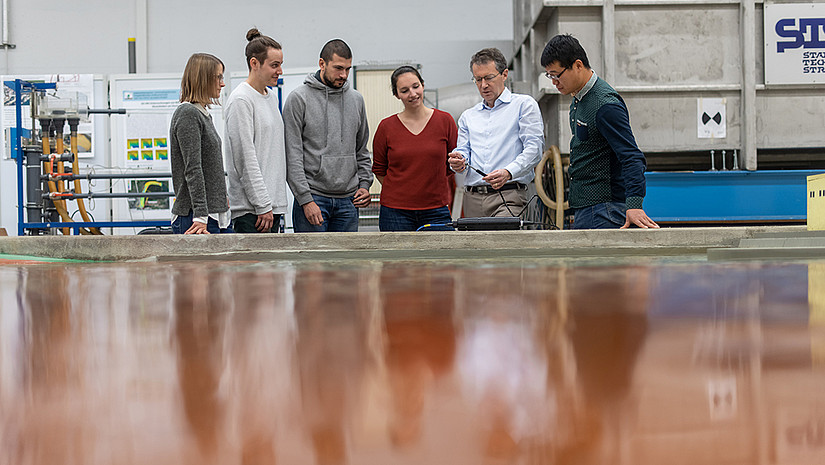Study structure
The content on this page was translated automatically.
The program offers students the opportunity to gain detailed knowledge and competent skills in the field of environmental engineering, linking ecological aspects with the economic and practice-oriented tasks of engineering. It is designed to appeal to students who, on the one hand, are interested in civil engineering systems and, on the other hand, want to be actively involved in environmental protection by contributing to sustainable developments in infrastructure and civil engineering. The aim is to prepare students for professional employment in planning, in administration, in industry and in national and international organizations in the field of environmental engineering. Environmental engineers deal with technical solutions of all tasks in the environmental field, such as water supply, wastewater disposal, waste recycling and disposal, soil protection and remediation, traffic, ecological and economic water management, renewable energy production, air pollution control, socio-ecological and socio-economic interrelations, environmentally sound construction, environmental and quality management.
In the course of study, students acquire the competence to understand environmentally relevant procedures, processes, methods and plants, to calculate, design, evaluate, compare and further develop them using scientific methods; to document and communicate this knowledge and the acquired knowledge. The aim is to impart the competence to acquire the above-mentioned understanding independently by means of an exemplary procedure.

